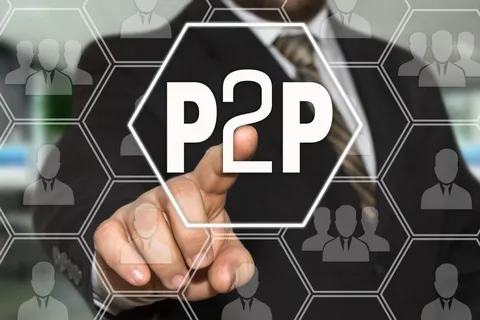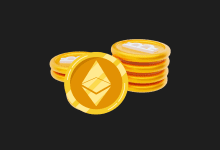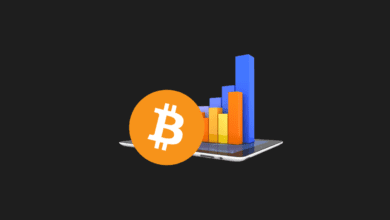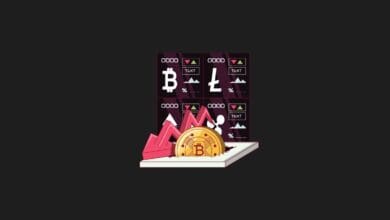What Is P2P and Why Is It Important? Usage Areas and Examples

It’s hard to delve into the cryptocurrency market or blockchain technology without encountering the term peer-to-peer (P2P). At some point, you’ve probably asked yourself, “What is P2P?” The concept of P2P, short for “peer-to-peer,” forms the backbone of Bitcoin and numerous other decentralized cryptocurrencies. It represents a revolutionary model for data transfer and communication.
In this article, we will explore:
- What is P2P?
- What does P2P mean?
- What is P2P trading?
- Is P2P gaming the same as P2P transfer?
- Is P2P legal?
What is P2P?

The term P2P, or peer-to-peer, refers to a decentralized model of communication or data transfer. In this system, two parties interact directly, eliminating the need for an intermediary. Imagine a scenario where a friend asks you for a loan. You can transfer money through a bank, involving a third party. Alternatively, you could hand over the money directly, removing the intermediary. This is the essence of P2P: direct transactions without middlemen.
However, physical handovers aren’t always feasible, especially when distance is involved. The internet revolution of the late 1990s gave rise to peer-to-peer file-sharing applications, such as BitTorrent (BTT), which remains influential today as a cryptocurrency.
In 2008, the introduction of Bitcoin, detailed in the Bitcoin whitepaper titled “Bitcoin: A Peer-to-Peer Electronic Cash Payment System”, marked a pivotal moment. It demonstrated how the blockchain—a decentralized P2P network—could facilitate secure, intermediary-free transactions. Bitcoin was soon followed by smart contract platforms like Ethereum (ETH), catalyzing the rise of the decentralized finance (DeFi) ecosystem.
What Does P2P Mean?

In the context of blockchain, P2P signifies a direct interaction between two users, facilitated by a decentralized platform. These platforms, unlike traditional centralized systems, allow for increased privacy, efficiency, and cost-effectiveness.
For instance, P2P networks enable cryptocurrency trading directly between parties, bypassing intermediaries such as banks or centralized exchanges. This mechanism has become the cornerstone of DeFi applications.
Is P2P Gaming the Same as P2P Transfer?

The term P2P in gaming usually refers to the “pay-to-play” model, where players pay a fee—either one-time or recurring—to access a game. However, this differs from the blockchain-based P2P model.
Blockchain games, especially play-to-earn (P2E) games, integrate P2P trading of in-game assets, often represented as NFTs. While P2P mechanisms exist in these games, “P2P gaming” typically describes pay-to-play games rather than blockchain-based gaming activities.
What is P2P Trading?

P2P trading, or peer-to-peer trading, refers to the exchange of assets directly between users without intermediaries. Commonly facilitated by decentralized exchanges (DEXs), P2P trading employs smart contracts to enable secure, automated transactions. For example, trading ETH for XRP without involving a centralized exchange is a classic P2P operation.
Are Decentralized Exchanges Intermediaries?

No, decentralized exchanges are platforms that facilitate direct interactions between users. Think of a DEX as a bus route where passengers buy tickets directly from the driver—no third-party involvement, much like P2P trading.
Advantages of P2P Trading

- Privacy: Transactions occur directly between parties, enhancing confidentiality.
- Efficiency: Removing intermediaries streamlines the process.
- Cost Savings: Without third-party fees, costs are significantly reduced. Some DEXs charge minimal fees for platform maintenance or reward users with incentives.
For more details on decentralized exchanges, check out our article, “What is a DEX?“.
Is P2P Legal?

The legality of P2P trading depends on regional regulations. In USA, for instance, the Capital Markets Board (CMB) restricts P2P platforms. The CMB’s bulletin dated September 19, 2024, states:
“P2P platforms facilitating the buying, selling, or exchanging of crypto assets directly between users are deemed unauthorized crypto-asset service providers under Article 99/A of the Law. These activities must cease by December 6, 2024.”
While many countries embrace P2P technology, understanding local laws is crucial before engaging in P2P transactions.











